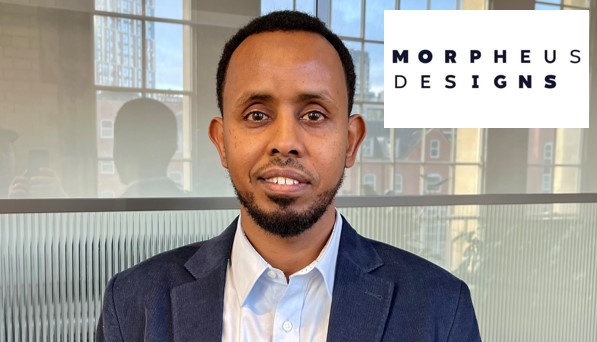Hi, my name is Ahmed Hussein, the co-founder of Morpheus Designs Ltd. My background is in mechanical engineering with technical expertise in thermal management and additive manufacturing (AM) technologies. I’m the author of 20+ scientific papers and a book on additive manufacturing.
My role in Brava is to work with the design an analysis team in delivering optimal heat exchanger for the fuel cell technology.
What was your original motivation to become a researcher?
Being a researcher is a unique and fulfilling career as it allows you to discover and develop new ways to solve real world engineering problems. It gives the opportunity to work in cutting-edge and emerging technologies. Having a PhD on additive manufacturing, gave me the ability to work independently in new research frontiers and work in R&D projects addressing decarbonisation in transport. My first project involved the development of an ultra-compact recuperator for microturbine engines to improve the ranges of EVs.
What is your (main) research area today?
Heat exchangers are critical to the performance of many systems and applications. My main research area is the development of advanced design and analysis approaches to create optimal and lightweight thermal solutions using additive manufacturing.
What is the main objective of your team in BRAVA?
To succeed in the delivery of ultra-efficient and zero-carbon aircraft technologies, this project is taking advantage of the cross-cutting enabling technology of AM and novel design optimization tools developed by Morpheus Designs. Our objective is to deliver a scalable and lightweight Air-to-Liquid heat exchanger demonstrator tailored for the fuel cell cooling.
What expertise and facilities does your team have to meet those objectives?
Morpheus will use its in-house developed design and analysis tools tailored to deliver compact and highly efficient heat exchangers.
BRAVA project will be supported by:
- Javier Viñuales: With experience in the field of AM as Design Engineer and Analyst. Proficient in computational analysis tools such as CFD and FEA. Specialises in thermal design, design for AM and structural optimization.
- Dr Ahmed Hussein: With experience in AM and thermal modelling. Managed and technically led innovation projects from early prototype to higher TRL products.
Which aspects of your research at BRAVA do you believe are the most innovative and what unique opportunities offer BRAVA to yourself and/or your organisation?
The proposed heat exchanger is predicted to be lighter and smaller than conventionally manufactured heat exchanger that meets the same performance. By prioritising compactness and weight reduction, we aim to significantly minimise fuel consumption and maximise efficiency. The ability to design and produce an integrated heat exchanger solution into the aircraft system reduces parasitic losses and aircraft drag, thus improving fuel economy.
The BRAVA project gives us a huge opportunity to work with a world class and diverse consortium in delivering clean propulsion technology. It enables us to innovate, validate, and deliver cutting-edge heat exchanger products for the aerospace market.
How do you see the future use of the BRAVA-results and the impact of BRAVA-project in our daily lives?
The exploitation of the project outcome will lead to further collaboration opportunities with the consortium. This will expand the current products and market portfolio while expanding the existing customer base. Morpheus will use the BRAVA outcome to further invest in R&D and design resources to advance heat transfer technology for next generation aircraft technology.
BRAVA is set to redefine the possibilities of Fuel cell systems in aviation. It will pave the way for a hydrogen-fuelled electric, efficient, and high-performing future of flight.

